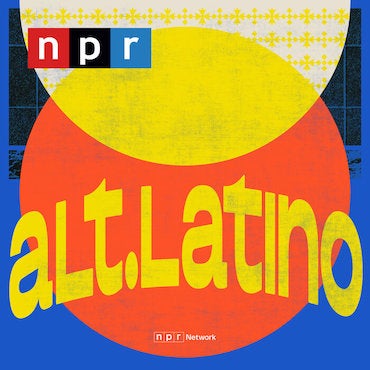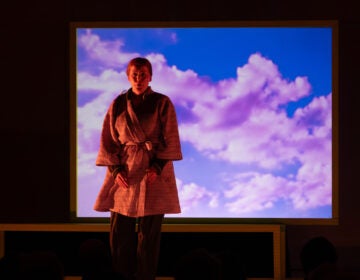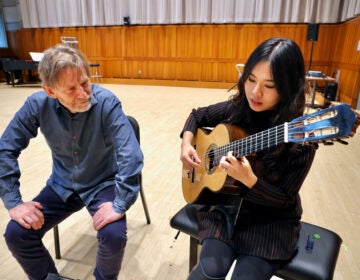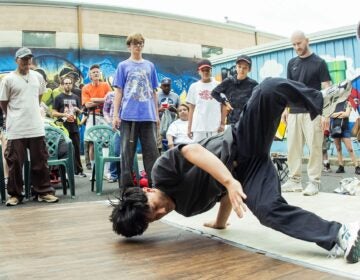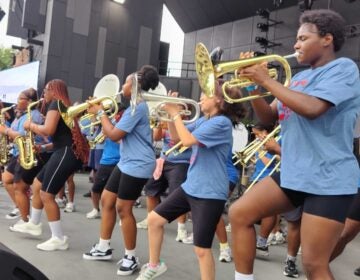Philly Organ Festival uses sacred pipes to make secular music
A week-long music festival on eight church pipe organs around the city brings thunder down from the heavens.
Listen 1:29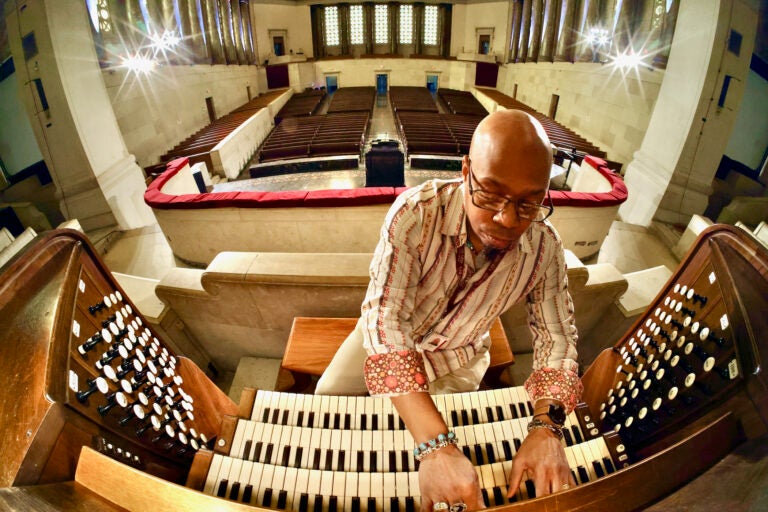
Paul Eaton, chair of fine arts at Girard College, plays the organ in the college chapel. (Emma Lee/WHYY)
From Philly and the Pa. suburbs to South Jersey and Delaware, what would you like WHYY News to cover? Let us know!
Inside the chapel of Girard College in Philadelphia, the heavens seem to crash down on top of you.
The massive pipe organ, with over 6,000 pipes, is installed in the rafters overhead. Gold-leaf Art Deco fins on the ceiling radiate the booming sound downward. Designed and built in 1932 by E.M. Skinner, it’s one of only two existing organs built with the pipes overhead.
“The echo sounds can come from behind you. The [pipe sections] choir and great and swell come from different sides. You can hear and feel all that,” said band and choir director Paul Eaton. “The gigantic pipes which create the low sound rattle the entire chapel. The whole building is the instrument.”
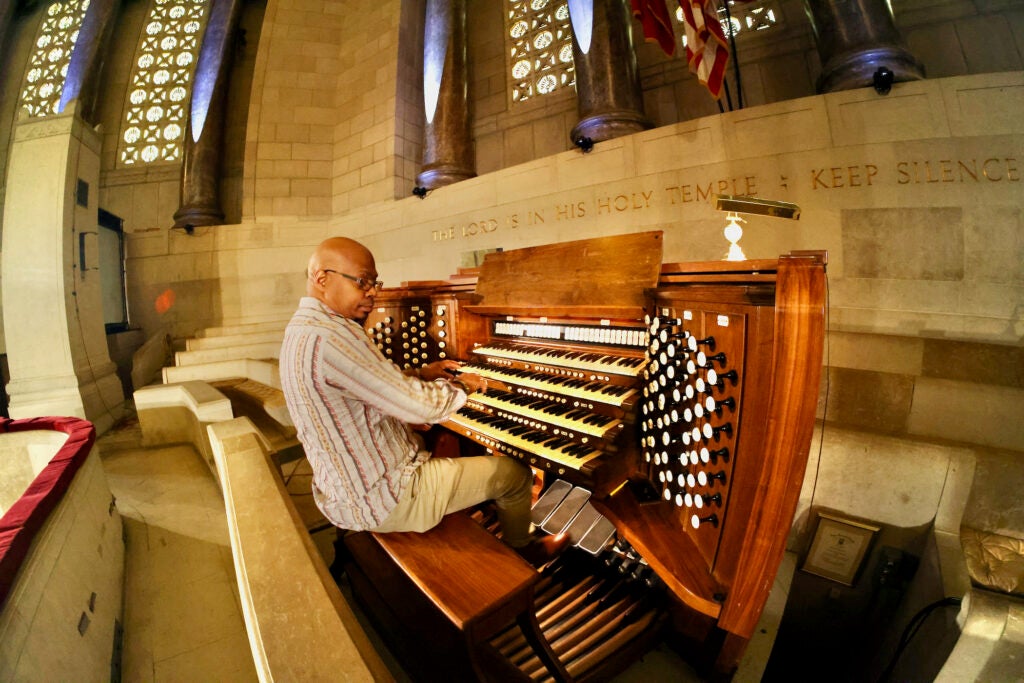
The Girard Chapel will host the opening concert of the inaugural Philadelphia Organ Festival, spotlighting eight instruments around the city that are rarely heard beyond the congregations they serve.
The Girard organ, for example, is typically played once a month for services, usually just for the faculty and students at the school, a few hundred people. The chapel can seat 2,500.
Eaton programs a couple organ concerts a year so the public can hear the instrument. He says the organ is known internationally. People come to see it even when there is no concert, just to stand in its space.
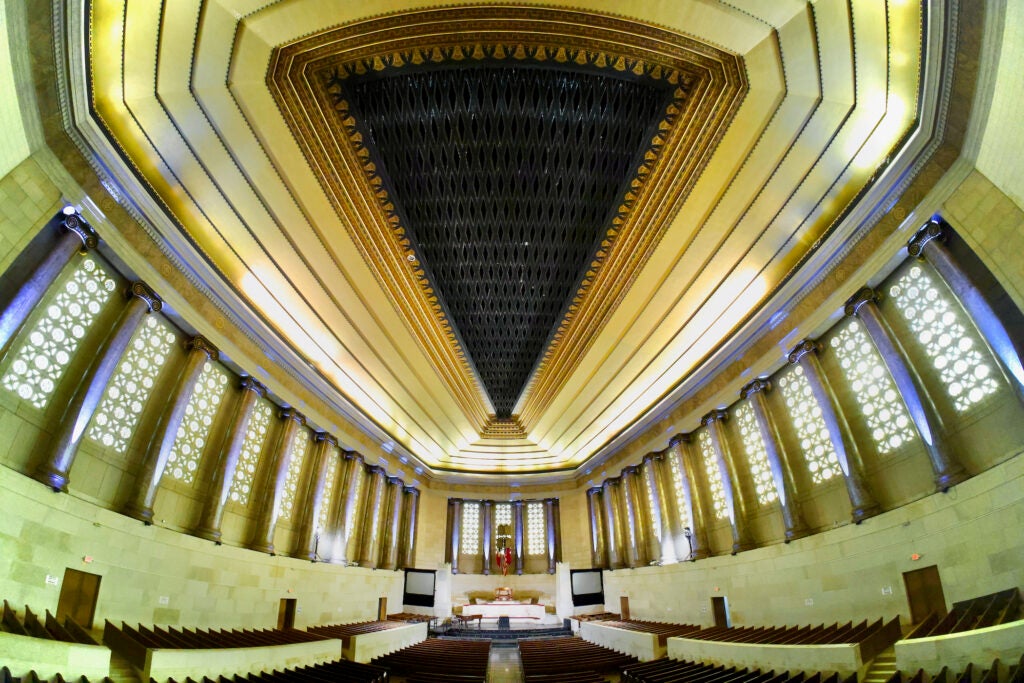
“It was E.M. Skinner’s swan song instrument,” Eaton said. “It was the last organ he built before the company changed hands and all of the original work is still here. There have been some alterations, but it’s pretty much a period instrument that is 85 to 90 percent intact.”
The Organ Festival is produced by the Partners for Sacred Places, a Philadelphia-based organization which assists congregations nationwide to better utilize their sometimes under-used buildings.
In 2018 Partners began surveying existing pipe organs in Philadelphia churches and synagogues to keep track of where they are, and what condition they are in. Due to the daunting cost of installing and maintaining pipe organs, they are typically bought when congregations are at their height. Over time a church’s resources can shrink, staff is cut, and they are not able to properly care for a huge instrument with finicky mechanics.
“One of the things that was inspiring to me was to see how eager congregations were, that would pop up to say, ‘Wow. This is incredible. We’ve really struggled to understand how to care for this. We don’t have either musicians or leaders here who know enough about making the right choices for this,’” said Joshua Castaño, who designed the survey.
“I think this program was really inspiring for them because it said people care about these instruments, and there might be some help along the way,” he said.
The organ festival is an outgrowth of that survey, to make these sometimes hidden instruments more visible and better appreciated by people outside their respective congregations. The featured organs are at Girard College chapel, St. Luke’s Germantown, the First Presbyterian Church in Germantown, Tindley Temple on South Broad Street, Rodeph Shalom on North Broad Street, the Unitarian Society of Germantown, the Philadelphia Episcopal Cathedral in West Philly and the only secular location: Longwood Gardens in Kennett Square.
“The big part of the festival is showing the organ beyond what it does on Sunday morning or Friday evening,” said Castaño. “Just showing people that this is an amazing, place-based instrument that can bring really exciting music to every community and every neighborhood in the city.”
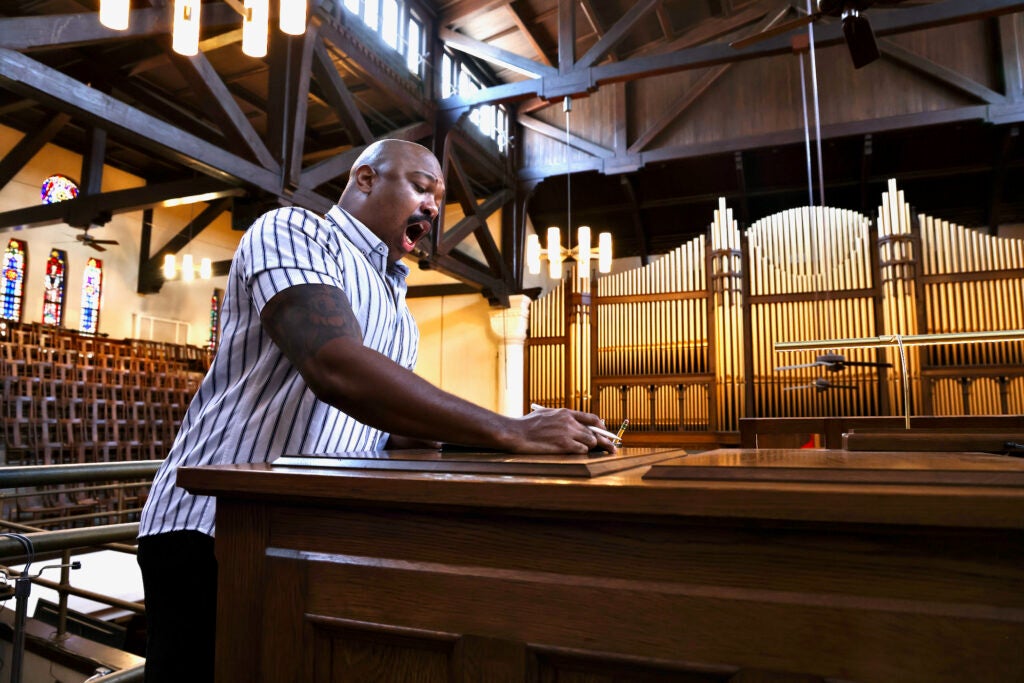
Each performance is a collaboration. The Grammy-winning choir The Crossing will join organist Amanda Mole at First Presbyterian Church for a program of modernist pieces, including the rarely performed “Music for Mallet Instruments, Voices, and Organ” by Steven Reich. At St. Luke’s organist Matthew Glandorf will play a partially improvised score for Carl Theodor Dreyer’s classic silent film, “The Passion of Joan of Arc “ (1928).
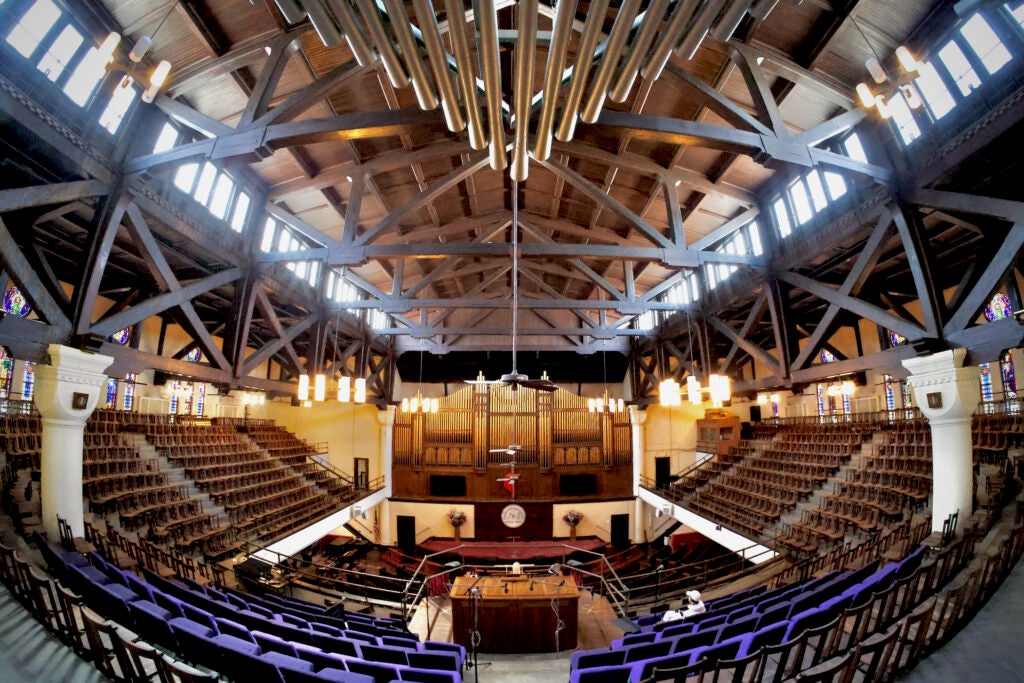
The pipe organ at the Rodeph Shalom synagogue will be joined by an amplified ensemble, including an electric guitar, to play a newly composed soundtrack to a once-lost Colombian silent film, “Garras de Oro” (1926).
It is one of the concerts festival director John Walthausen is particularly looking forward to.
“Organs have a less-long history in Jewish worship,” he said. “But anyone who’s been to Rodeph Shalom knows what a magnificent space it is.”
At Tindley Temple, a United Methodist church on South Broad, organist Alan Morrison will accompany singers Brenton Mattox and Jillian Patricia Pirtle, of the Marian Anderson Historical Society. They will perform a program including songs as sung by Anderson, who was known to have performed in Tindley, and music by composer Florence Price.
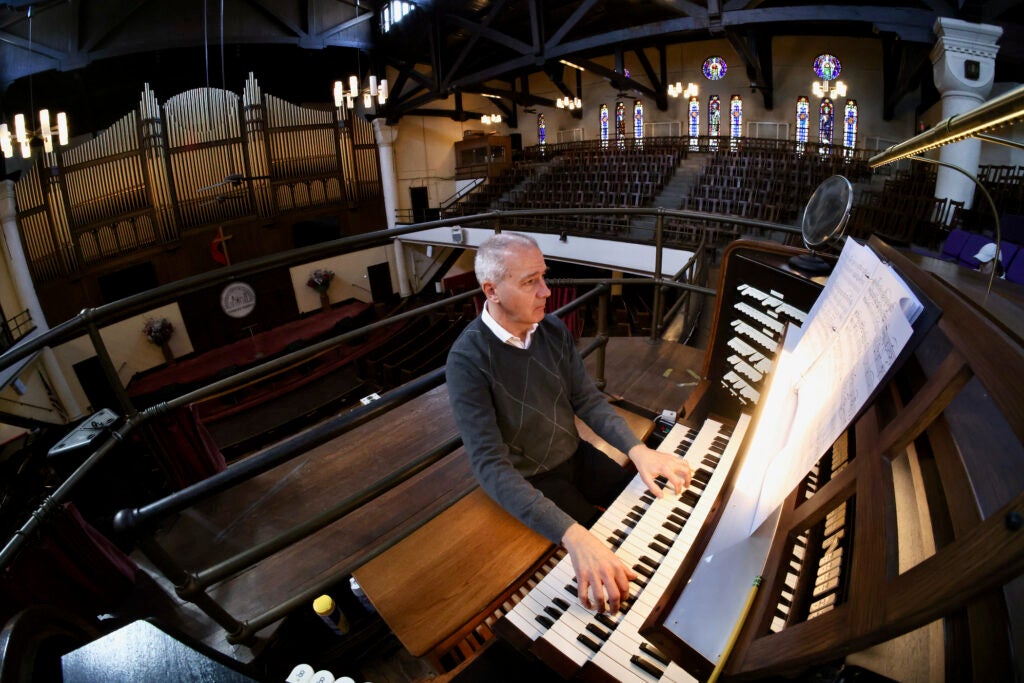
“She was an organist in a silent movie house and used to improvise to the old silent movies,” Morrison said. “These pieces are very — she doesn’t call them character pieces, but they’re very visual to me. You can almost see the action happening when you play them.”
Unlike most other instruments that are portable with a relatively consistent sound, pipe organs are unique to the building into which they were built and have their own individual colors, like the thunder coming down from on high at Girard College.
“It produces this totally lush, symphonic sound,” Walthausen said. “All the pipes are above the auditorium in a chamber, so they all speak to you as though coming out from the sky.”
In contrast, the Unitarian Society in Germantown was made in the 1960s and designed specifically to reproduce the German Baroque sound of J.S. Bach.
“Rather than being this very big, symphonic instrument, it’s much more talky. The pipes are in a case that speaks directly into the room. There’s a lot more brightness there,” Walthausen said. “It does something totally different.”

Get daily updates from WHYY News!
WHYY is your source for fact-based, in-depth journalism and information. As a nonprofit organization, we rely on financial support from readers like you. Please give today.
